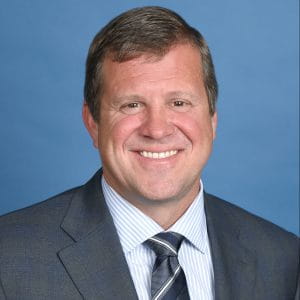For years, the industry has been talking about the future of the physician practice, which I anticipate will continue to be a hot topic at HIMSS17. Many physicians want to be the entrepreneurs they’ve always been, focused on driving wellness efforts within their communities rather than filling sick beds at hospitals. While this goal aligns with value-based care, practices are struggling to meet value-based requirements while staying financially afloat due to lower margins and competing priorities.
Independent practices are the key to making the value-based care concept work, but progress is being hampered by physicians being pulled in different directions, constantly having to update software and become experts on new regulatory requirements.
Highly-reliable processes that help physicians deliver better care faster and at a lower cost will enable practices to more easily reap the benefits of value-based care. Efficiency and flexibility within those standardized processes will power practices to move toward value-based care at their own pace and in a way that best serves patients.
Standardization to remain independent
The typical independent physician practice that has organically grown now finds itself without cohesive, standardized processes. This problematic for value-based reimbursement models rewarding care efficiency and outcomes performance, as much of this effort is rooted in clinical best practices and reporting requirements.
Instead, practices must define their own operational consistency, which lays the foundation for reliable care delivery and helps practices better control both cost and quality at their own pace.
Physicians must embrace standardized, technology-driven workflows that increase efficiency and minimize variability. At the same time, they should realize these strategies must minimize "screen time" and reduce technology clicks to increase face-to-face patient time. While it may seem counterintuitive, standardization also helps practices maintain their independence by providing a proven yet flexible process to follow as they work through regulatory and value-based model changes.
In a fluid regulatory environment, providers need flexible solutions to help them remain independent. The best infrastructures enable providers to react to real-time changes and update strategies as needed. To that end, vendor updates must evolve to help providers conquer changes between scheduled product releases. That way, providers are empowered to solve their own unique challenges and are better equipped to address specific performance improvement goals.
Independence: The key to value-based care
Ultimately, one size doesn't fit all: Standardization does not mean that providers in the same market follow the same cookie-cutter operational practices. Each practice must assess their own unique circumstances to determine the best path towards reliable care delivery as value-based care evolves. That's why physicians need the right partner to guiding them to use standardization to maintaining their independence and improve care.
Independent physicians are the foundation of value-based care, and true healthcare transformation begins when practices are set up to empower the entrepreneurial physician. Visit us during HIMSS17 at booth #3361 to see how NextGen is helping providers build solid, sustainable strategies for value-based care success and remaining independent.
I look forward to HIMSS17 to continue our commitment to you, Join me for Coffee Monday, February 20th, booth #3361 let's chat about knocking down barriers! I'm looking forward to meeting you. To learn more click here.
Meet NextGen Ambient Assist, your new AI ally that generates a structured SOAP note in seconds from listening to the natural patient/provider conversation.
Read Now